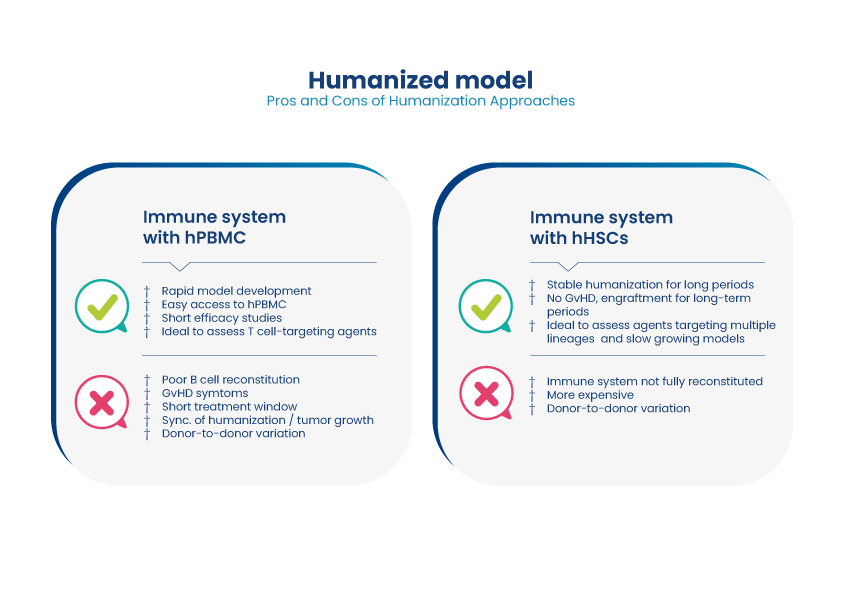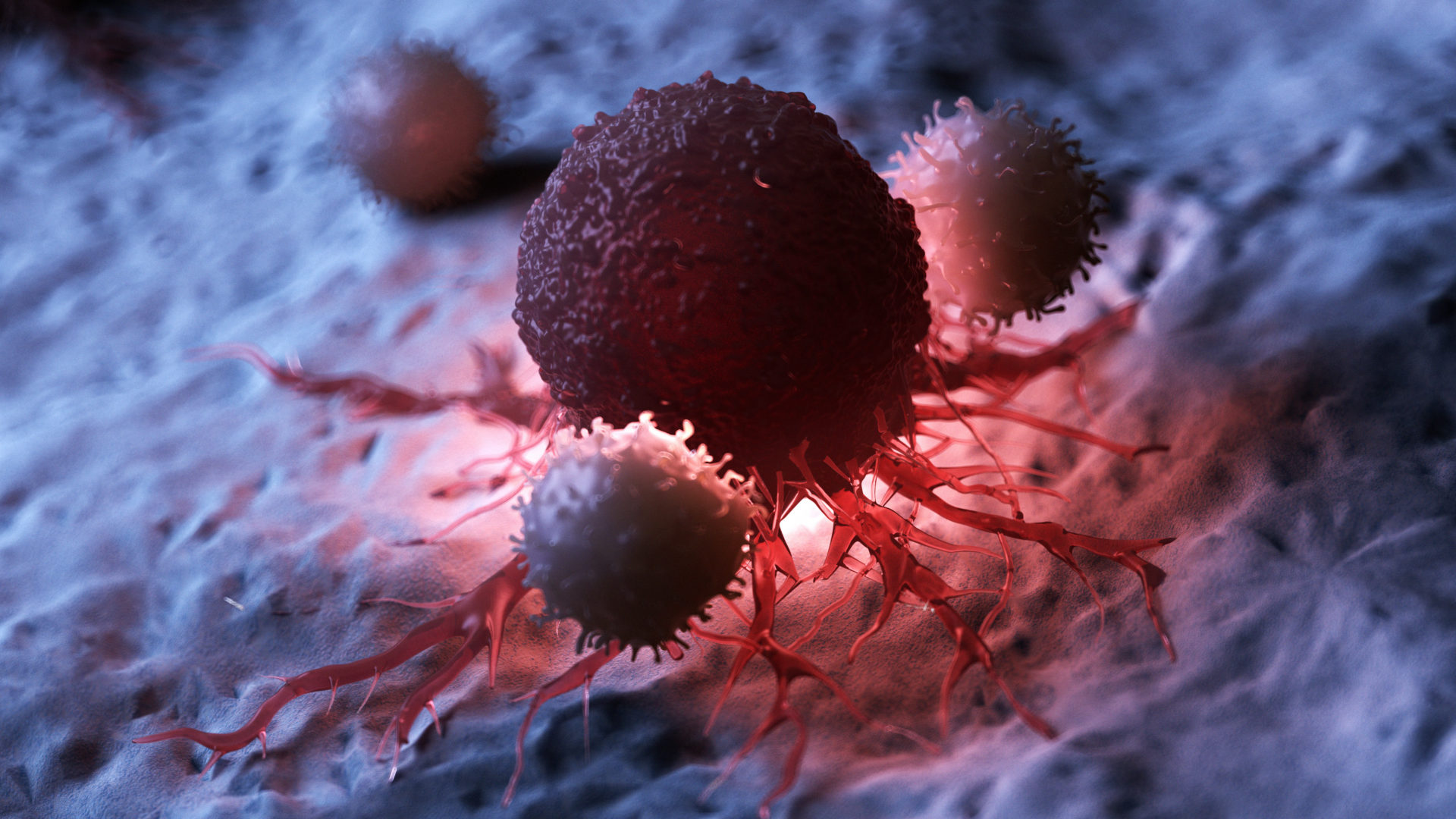
Humanized immune system models, engineering mice that recreate human inflammation
Mouse models of inflammatory diseases in animals bearing components of a humanized immune system are attractive preclinical models allowing the study of new therapeutic solutions that critically require a human target.
Typical readouts for inflammatory humanized mouse models
Clinical monitoring and scoring
Clinical biochemistry
Organ histology
Multiplex cytokine profiling
Immune cell phenotyping (FACS)
T cell responses (ELISPOT, proliferation, FACS)
In vivo pharmaco-imaging
Gene biomarker expression monitoring
Oncodesign Services supports your preclinical needs with the development of tailor-made humanized models for inflammation therapies
Since 2002, Oncodesign Services has adopted the most recent humanization techniques, in order to be at the cutting edge when offering preclinical services in the field of inflammatory diseases. Humanized mice can be either genetically modified strains for the expression of specific human genes, or immunodeficient mice receiving a human cell transplantation (e.g. using peripheral blood mononuclear cells or human CD34+ hematopietic stem cells). We can receive humanized animals form worldwide providers (including Charles River Labs, Janviers Labs, Jackson Labs, Taconic, genOway, Gempharmatech,…) and are agnostic in our use of immunodeficient, humanized animals (e.g. mouse families based on the NSG, NOG, NCG or BRGS backgrounds) – based on your specific needs and requirements. We have extensive experience in handling drug candidates of various natures and mechanisms of action: small molecules, antibodies and derivatives, peptides and proteins, gene and cell therapies, vaccines and combinations there of.
Our laboratories can offer inflammation models, run on mice bearing a human immune system, including for instance colitis models and GvHD models. Our portfolio of inflammation models covers diseases of the skin, gut, lungs, kidneys, liver and more.
Importantly, all of our sites and in-vivo departments maintain full AAALAC International accreditation of our animal care and use program.
Interested in learning more about our humanized models?



